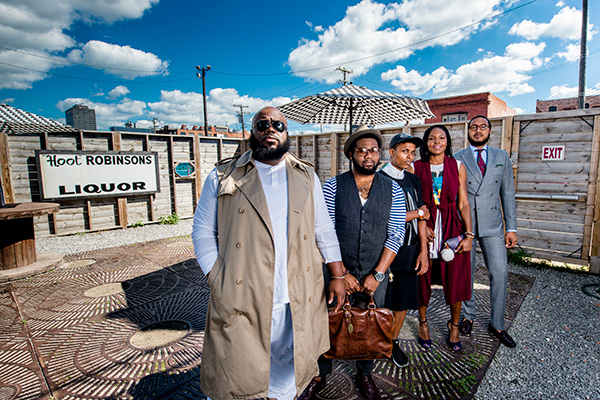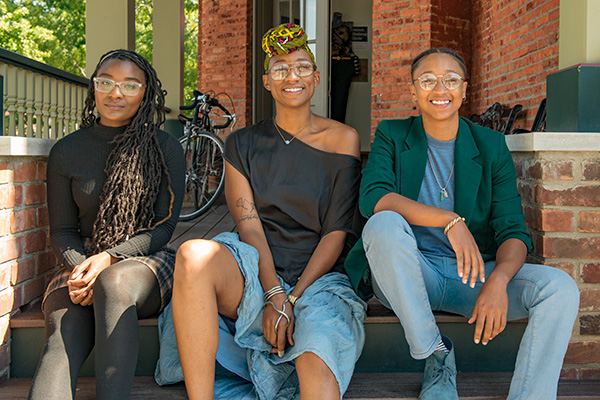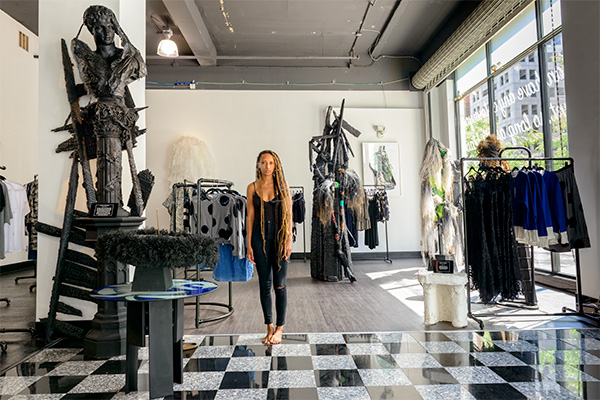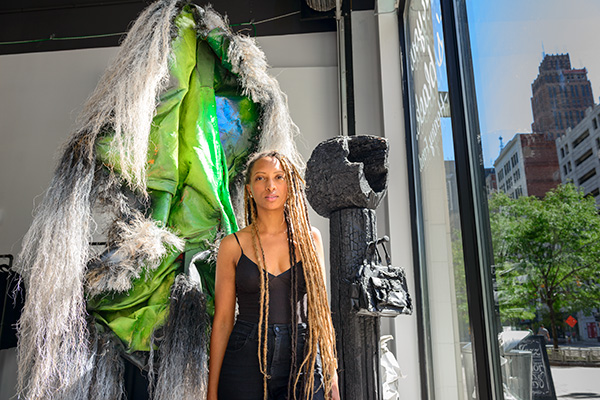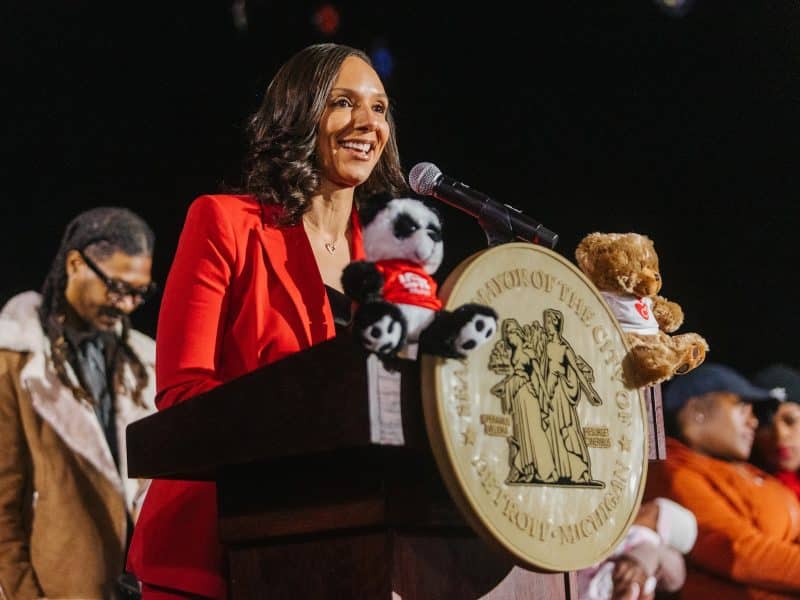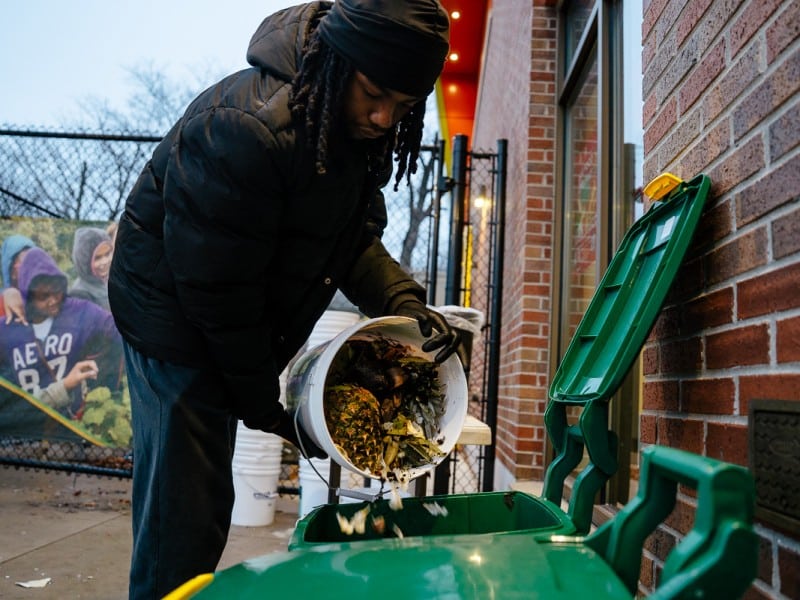Detroit style: How some of Detroit’s fashion-makers define their city’s aesthetic
With the opening of several international-brand retail stores and news of the redevelopment of the Hudson's site, Detroit's fashion scene is once again in the spotlight. But as Muna Danish discovered, brands are much less important than style in Detroit.
Across from the new Nike store downtown and a few steps from the daytime bustle of Campus Martius Park, there’s an empty city block where the Hudson’s department store once stood. Erected in 1911 and demolished in 1998, Hudson’s was once the tallest department store in the world, standing at 410 feet and 25 stories tall.
While its televised implosion became a familiar symbol of Detroit’s economic decline, Hudson’s, at its peak, represented an era of glamour and growth the city.
Since hitting rock bottom in 2013 with the largest municipal bankruptcy filing in history, downtown Detroit has experienced a dramatic transformation as new businesses emerge, arts and creative “districts” are announced, and market-rate lofts and apartment buildings now have waitlists. In 2015, it was announced that the Hudson’s site will be redeveloped into a mixed-use space by the New York-based design firm SHoP Architects.
This changing landscape is also reflected in a growing fashion retail scene, where an increasing number of national and international brands, from Shinola to Nike, John Varvatos to Carhartt, are finding a home in Detroit, drawn to the ethos of opportunity and reinvention that the city has become synonymous with.
But while Detroit is finding itself on top ten lists and fashionable blogs, how do Detroiters define the style and aesthetic of their city? Just as the art and music scenes in Detroit have been integral in defining the city’s culture, a local fashion movement is channeling that same creativity and collaborative spirit.
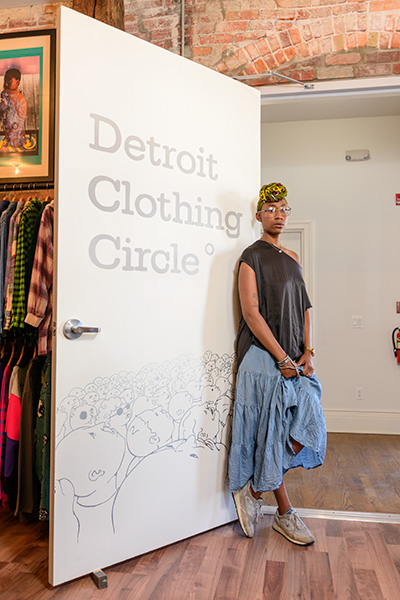
Wearing whatever we want
“Getting dressed is one of the many ways we connect,” says Bree Gant, co-founder of RockCity Lookbook (RCLB), a blog and fashion collaborative in Detroit. Gant grew up in Detroit and moved to D.C. for college before coming back to the city in 2012.
She and her co-founder Stephanie Blair Watts started RockCity Lookbook as a blog that was an “outlet and reflection of ourselves”—young black women in Detroit. The goal was to make fashion more accessible and to support young black artists who were doing exciting work in the city, but weren’t necessarily represented in media narratives.
“We wanted to tell a different story about Detroit, using fashion as a lens,” says Gant.
They began by taking street-style portraits of friends who were artists, musicians, and trendsetters—using fashion as the connecting thread across artistic genres. Since then, RCLB has evolved beyond the blog to produce events, designer lookbooks, and a biannual zine about Detroit style.
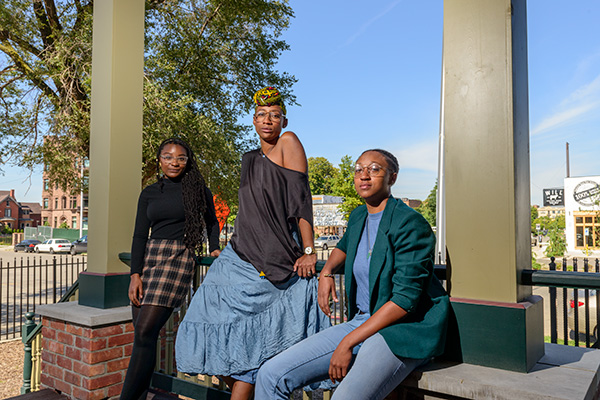
Gant sees fashion in Detroit as a litmus test for how society and cultural norms are shifting across the country as a whole, but especially within the African diaspora.
“Fashion is a big part of Detroit’s culture,” says Gant. “In black american culture, it’s been a form of revolution and resistance, but also emerged as respectability politics. Now we’re turning that idea on its head—we can wear whatever we want and still be talented and relevant.”
Gant sees fashion in Detroit as distinctly connected to the art and music scenes in the city. “We’re heavy on aesthetic here but we also we have something to ground that aesthetic,” says Gant, reflecting on how Detroit style is rooted in the city’s larger creative movements and narratives.
Detroit style isn’t about latching onto trends or trying to outshine others, but finding a way to tap into something bigger and more meaningful, a means of expression and connection. Rather than emphasizing new brands and fashion trends, Detroiters are finding a way to express their story, creativity and personality through what they wear.
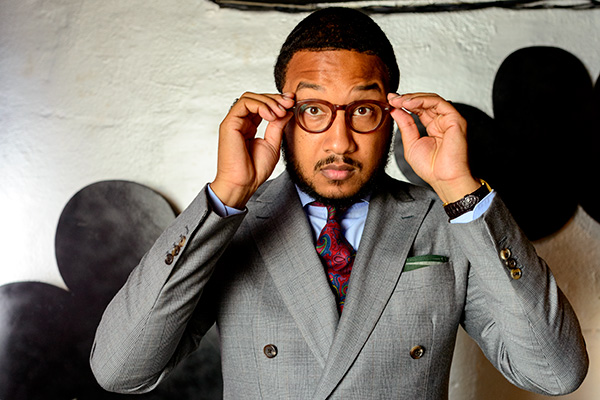
Like Gant, Nelson Sanders has a passion for bringing people together through fashion. That’s why he started The Seen, a network of fashion and street-style enthusiasts, as a response to people saying there was no style in Detroit. His goal was to showcase the aesthetic diversity here, while also highlighting different neighborhoods and small businesses in Detroit through photography.
For many from outside the city, the perception of Detroit style often starts and ends with the “urban” look: “think white tee, loud name-brand jeans, Jordans, Cartier glasses—a gaudy urban uniform,” Sanders explains.
Sanders wants to push beyond those stereotypes with The Seen, where members of the collective gather monthly to take street style photos and network in an informal space.
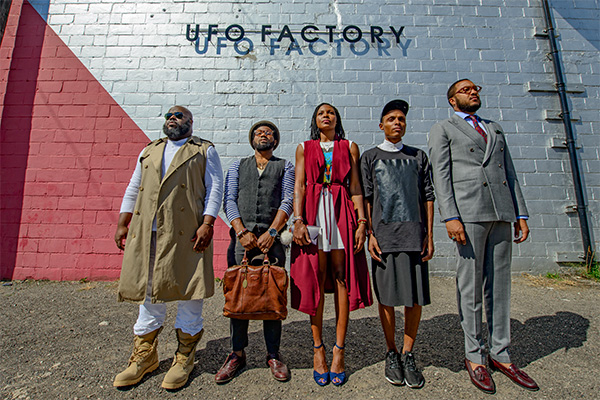
“People in Detroit are very resourceful,” he says. “Thrifting culture is big here—a lot of people mix new pieces with old and vintage pieces.”
Sanders sees less of an obsession around brands, and more of a focus on “the person, the vibe, and how they put things together.”
While he wants to continue pushing the boundaries of how people perceive fashion here, he’s also nostalgic for an older Detroit. “The one my dad and grandparents tell me about, with the Hudson’s downtown and shops all up and down Woodward. There was a passion and intentionality behind the clothes.”
In his vision for where Detroit fashion is headed, “everything kind of old is new again.”
Detroiters just have style
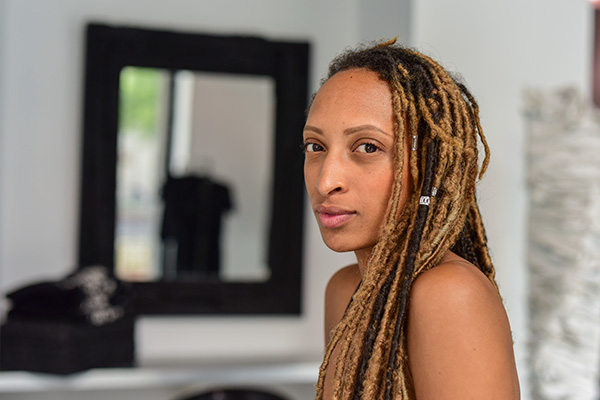
Roslyn Karamoko is a relative newcomer to the local fashion scene. She moved here three years ago and founded Detroit is the New Black, a brand, boutique, and “retail experience” located in downtown Detroit. The shop houses her own line of t-shirts, a curated collection of local and national designers, and a gallery space where she hosts community events such as open mics and painting classes.
Karamoko is excited by the growing fashion community and authentic approach Detroiters have towards style. For her, personal “style” in Detroit encompasses a way of life, in which fashion, or the brands one wears, are just one part of a larger story.
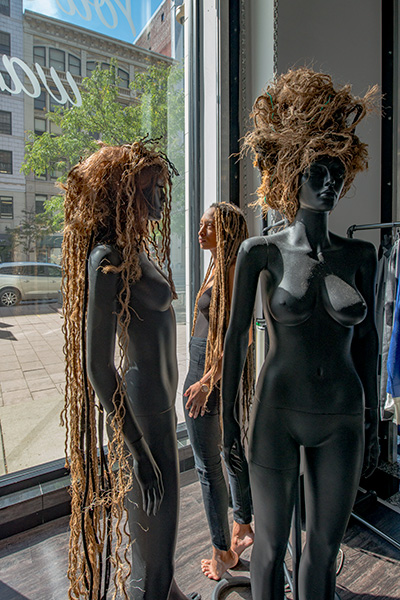
“I think people don’t really care about fashion in Detroit, as much as they just have style,” says Karamoko. “It’s less about the brands and products themselves, or what’s on trend, and more about the way Detroiters approach style—it’s functional and works for their lifestyle.”
This simplicity and functionality is reflected in her brand of t-shirts and hoodies, which are minimal black, gray, and white pieces with a bold slogan “Detroit is the New Black” printed on them. While her brand has been a success, the response to the name has been mixed, and Karamoko describes it as intentionally provocative and political.
“It triggers things for people when thinking about history, revitalization, and development in Detroit,” she says.
Karamoko, like Sanders and Gant, are all interested in fashion that conveys a message, elicits a response, challenges stereotypes. That, perhaps, is the essence of “Detroit style.”
All photos by Doug Coombe.

